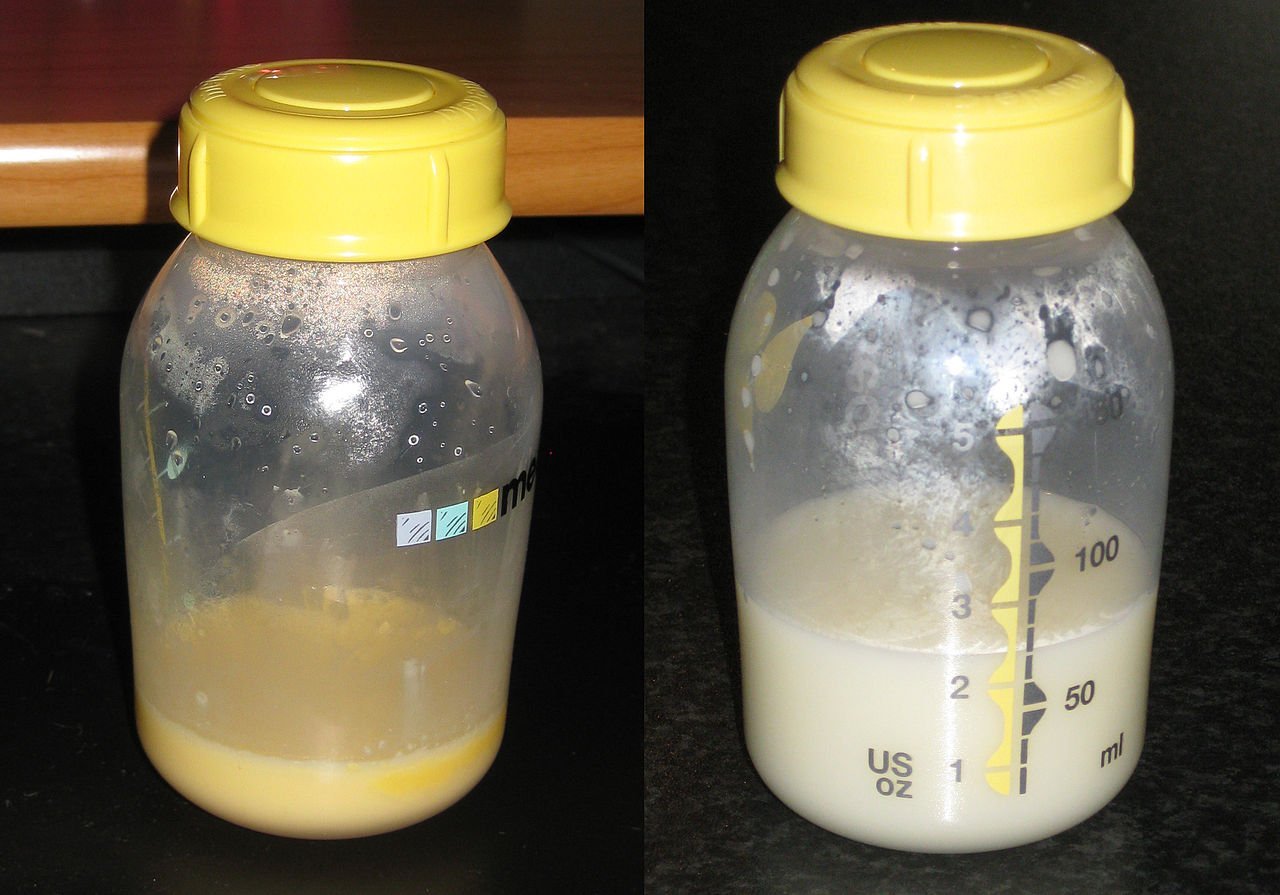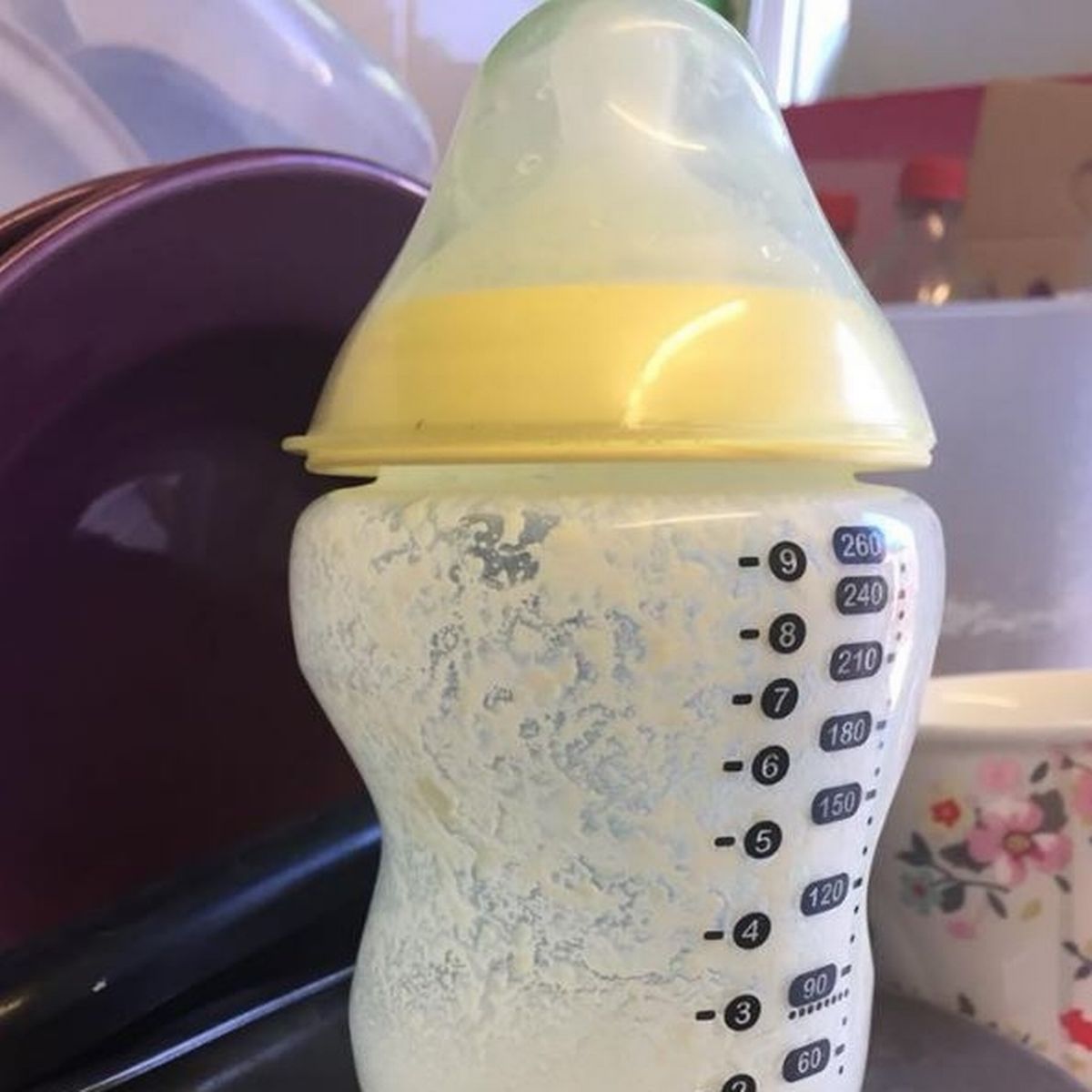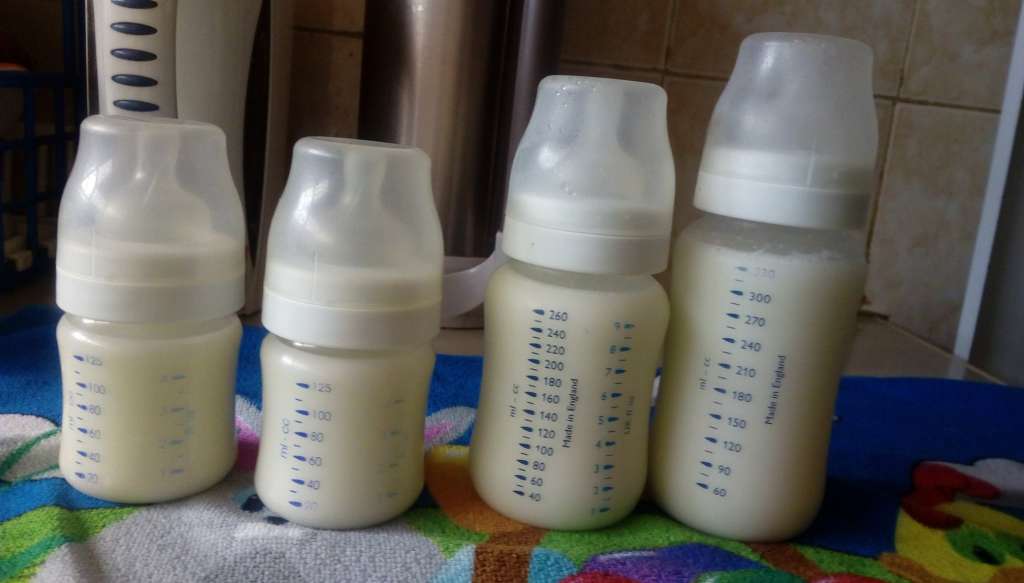The formula is a food for babies typically made from powdered milk. It is often used as an alternative to breastfeeding, especially by mothers who are unable to breastfeed their children. The formula is usually prepared sterile and it must be mixed with water before feeding the baby.
What is the inside formula?
The formula can vary from brand to brand, but the ingredients will always be a mixture of proteins, carbohydrates, fats, minerals, and vitamins. In addition, the formula contains other food sources for babies including lactose (milk sugar), galacto-oligosaccharide, or prebiotic oligosaccharides which help develop the immune system and gut bacteria in the baby's bowel.
A good formula will provide babies with all the protein, carbohydrates and fat they need in the first year of their life. As a baby matures into an infant or toddler then it is important to remember that formula may no longer have the right balance of nutrients for them.
In addition, there are many different types of formula available to mothers, including dairy-based formulas (cow's-milk), soy-based formulas, hydrolyzed formulas and elemental/polymeric formulas which contain only essential amino acids and carbohydrates. Elemental formulas are used when a baby cannot tolerate other types of formula usually due to gastrointestinal issues such as diarrhea or inability to digest cow's milk proteins.
Specialist formulas can also be made from human donor breast milk if a mother is unable to provide her own breast milk. The Human Milk Banking Association of North America provides a list of donor banks in the United States and Canada for mothers who wish to explore this option.
What is the difference between old and new formulas?
In general, manufacturers have changed their products so that they better meet nutritional requirements as recommended by organizations such as the World Health Organisation (WHO). This includes increasing levels of omega 3 fatty acids and decreasing sodium content.
For babies who are intolerant or allergic to cow's milk protein, there has been an increase in hypoallergenic formulas which contain no bovine serum albumin (a protein found in cow's milk) or whole proteins from cow's milk.
How long time must pass for the formula to spoil?
It takes a relatively short amount of time for the formula to spoil. Parents should check the expiry date written on the packaging and do not use it if past that date. If left unopened, some types of formula will stay fresh until that expiry date but they may be less nutritious or have a higher risk of bacterial contamination by being kept longer than recommended. In general, any opened can must be used within one week.
However, powdered infant formula has a much shorter shelf-life. Manufacturers recommend using it within one month of opening as oxidation may occur after this time, making the powder harder to dissolve and changing its color slightly from white to yellowish-brown due to degradation of fat content in the powder.

If you see a white ring inside the bottle of formula, this is what is known as a 'sour ring' and indicates that the water used to mix the powder was too cold. There are also changes in the smell of spoilt milk which may have developed bacteria or fungi by being left out at room temperature for too long.
What about powder formula? So, how much time should pass after you open the small can of formula before it goes bad? Manufacturers recommend that it should be used within one month of opening as oxidation may occur after this time, making the powder harder to dissolve and changing its color slightly from white to yellowish-brown due to degradation of fat content in the powder.
What happens if the baby drinks old formula?
When formula (water (H2O) + powder (the dry substance that makes up formula) + any additives that might have been added to the mix) goes bad, mold can start growing in it. The main symptom of poisoning due to drinking bad formula is vomiting; diarrhea may also occur but less frequently than vomiting. If you suspect (or know for certain) that your child has ingested spoiled formula, consult your doctor immediately.
It is also possible for your child to develop diarrhea if your child consumes too much formula, but this is less common than vomiting. Diarrhea following consumption of spoiled formula can cause dehydration so contact your doctor if you notice this symptom in your baby or child.
What are the health problems?
The main problem with consuming spoiled infant formula is that it makes babies sick, not because it poses any long-term harm to their health. At worst, if a large amount has been consumed then there may be side effects such as diarrhea and stomach cramps. However, drinking small amounts of unpasteurized milk should not lead to anything worse than temporary gastrointestinal discomfort which will subside after several hours without treatment.
What is the treatment?
Treatment of poisoning from drinking bad formula depends on how much your baby consumed and how quickly they received medical attention. If you know for certain that your baby drank bad formula, but no other symptoms are present then you should still seek medical attention to make sure everything is fine. Generally, this will involve a doctor explaining what happened, making sure there are no longer any ill effects, and giving advice about appropriate feeding times in the future.
If your child developed diarrhea or vomited after consuming bad infant formula, then it's possible they have become dehydrated which may require rehydration therapy. Again, if you suspect this is the case then seeking immediate medical help is important to prevent long-term problems such as kidney failure.
If your child has drunk far more bad formula than they should have then you may need to go directly to the emergency ward of a hospital. You will need to describe what your baby drank, how much, and how quickly they received treatment.
How can you prevent it?
Sanitize bottles and storage places
It is a good idea to follow the guidelines of your formula manufacturer when mixing and storing your baby's milk. If you have a steamer then this is a good method for sterilizing bottles for use by your baby. By using boiling water, you can ensure that any surface bacteria is killed off swiftly.
Pack an emergency pack
If there are any reasons why you might not be able to get home from work or go out in public with your child when they need feeding, it's a good idea to keep some baby formula on hand that is within the dates and has been stored correctly (i.e., not in direct sunlight) so that if necessary, you can still feed your child without worry about what they're actually drinking. Keeping feeding equipment, such as a bottle and teat, is also a good idea.

Don`t heat it in a microwave
Some older microwaves may not be as effective as newer models and therefore they might not heat the formula evenly. Microwaves can also cause 'hot spots' in the milk that could burn your baby's mouth if he or she swallows it. For this reason, it is recommended you heat bottles of formula in a pot of hot water on the stove instead.
Keep your hands clean
It is important to wash your hands before preparing bottles of formula. You should also think about having sanitary wipes or hand sanitizer on hand so that you can wipe down surfaces if necessary, particularly surfaces where the bottle might sit.
Keep the box out of direct sunlight
If possible, keep your baby's infant formula in a cool dark place such as a cupboard rather than placing it next to the window or under your kitchen's main lighting fixture. By following these steps, you can help ensure that potential bacteria don't have many opportunities to contaminate your child's food.
Label the bottles with an expiry date
By labeling bottles of formula with the time at which they should be consumed, you can help avoid any confusion about how long your baby's food is safe to eat. This also ensures that you are aware of when the container needs to be discarded.
Be on the lookout for white clumps or film formation in the bottle:
If there are visible signs of this then it means that bacteria have formed within your feeding equipment and this could lead to your child becoming sick. If this happens, throw all of the content of the bottle away immediately and thoroughly wash all surfaces where you might have dispensed milk before using it again.
Consider alternative feeding methods:
For some mothers, breastfeeding can be challenging due to their work schedules or other factors. Thankfully, there are a number of ways you can feed your child if breastfeeding is not possible. These include an infant syringe (which is passed through the mother's nipple) and cup feeding (where the baby feeds via a special receptacle).
Think about using formula milk in powder form:
When you've run out of ready-made containers of formula milk, you could consider using powdered formula instead. However, make sure that you follow the guidelines on the packaging carefully so that it contains enough nutrients for your child while also being prepared correctly.
What should you do with spoiled formula?
If you discover that your baby's food is spoiled before you have an opportunity to feed it to him or her, then there are steps you should take. First, check the storage instructions on the box or bottle itself to determine whether or not the formula can still be consumed after its expiration date has passed. If this isn't possible, throw out all of the remaining formulae and thoroughly wash any surfaces where it might have been dispensed from before using again.
How should you store the formula properly?
If you are unable to feed all of the formulae within an hour or two of preparation, then it is important to store it properly so that its nutrients are not compromised.

Therefore, keeping the bottle in a fridge instead of on a kitchen countertop is recommended as this will mean that the food lasts longer. However, avoid placing any bottles near another potentially dangerous source of heat.
Here are some tips on how to store formula:
- Include more water in the formula:
If you have been making your baby's bottles up at home but find they are less than perfect, you may want to consider adding some extra water. By doing so, it will allow for a greater margin of error and also ensures that there is enough milk in the bottle when it comes time for them to eat.
- "Cooler" storage:
As we mentioned before, keeping your baby's food in a fridge or other cooler place (so long as it remains clean) will help ensure that its nutrients remain intact and that its quality does not diminish quickly. Keeping this in mind can help reduce wastage when feeding your little one.
- Make sure the containers are completely empty before throwing them away:
If a container is not completely empty before it's thrown out, there is a possibility that bacteria could grow within the bottle and contaminate your baby. By making sure containers are properly cleaned before they are discarded, you can avoid this occurring.
- Wash all surfaces with hot soapy water immediately after feeding time:
By doing this you will ensure that all areas where your child may have been fed from remain clean. Keeping these zones free of potentially harmful germs ensures that any formula left over will be safe to eat next time around.
Conclusion
If you own a container of baby formula and find that your child isn't able to finish it off, make sure you store it properly in the fridge or other cooler place if possible. This will help ensure that the nutrients remain intact and all of the relevant guidelines for storage are followed.
Also, make sure you clean any surfaces where your baby eats from before using them again. If more than one hour passes before feeding time once more, be certain to add extra water into the formula so that there is enough room for error.
By doing this and following our advice above, it should mean that your child can continue to stay hydrated and satisfied when they need it most.